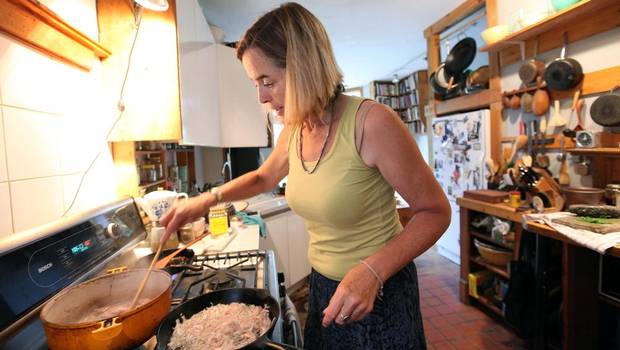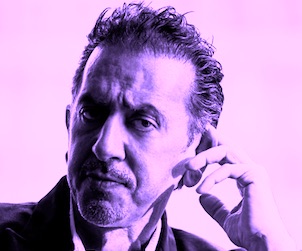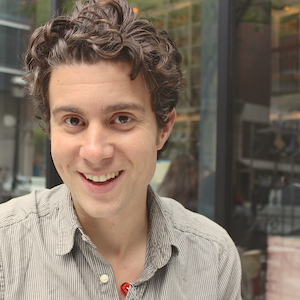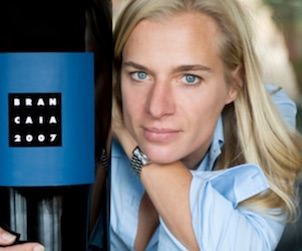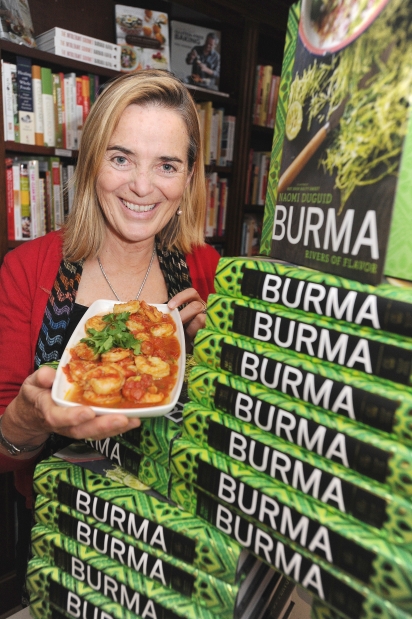
Author Naomi Duguid will be treating the crowd to the secrets of Burmese cuisine at this year’s Savour Stratford on Saturday the 21st of September Saturday 12:30pm on the Toronto Star Culinary Stage
Adding to the already content-rich Savour Stratford Perth County Culinary Festival is acclaimed cookbook author Naomi Duguid. Good Food Revolution recently chatted with her about her plans for Savour Stratford, her amazing culinary tours in Thailand, her recent book Burma: Rivers Of Flavour, and her love of culinary influence upon cultures around the globe.
For more information on Naomi’s various Savour Stratford appearances please click here.
Good Food Revolution: What with you having lived in both Ottawa and Toronto I’m assuming that you have been to Stratford previously? When you think of Stratford what immediately comes to mind?
Naomi Duguid: Yes, I actually spoke in Stratford a few years back, in 2008, a presentation about noodlemaking, handstretched noodles, that was really fun actually.
Ah, Stratford… for me it’s the green of the park, the farmland around Stratford, and the Shakespeare. I’ve been to quite a few afternoon performances there, and have picnicked in the park often.
GFR: And what will you be doing at Savour Stratford this year?
ND: Well, I think that I am doing around four sessions, but it will be best to check on the Savour Stratford website for all of the details… I’m doing something in the kids area, and I’m doing a demonstration where I’ll be making a few recipes from my Burma book, making a number of Burmese salads, and speaking about creating a Burmese pantry at home, as well as being part of a panel discussion.
GFR: Which came first. your love of travel or your love of food? And where there any epiphinal moments that you would care to share with us, as in can you remember the first Asian dish that first made you sit up and pay attention?
ND: Well, I think that I have always been curious about the world, and I like to understand how things work. So it’s not so much a love of food but more a curiosity about how people live and how things work, and so guess that it’s in essence travel that was my first love… and the people in different parts of the world, what grows there, what do people do with it… that’s really my thing… my endless curiosity. I like to be somewhere and try to understand how things work, rather than just looking at them, if that makes any sense?
Food is such a wonderful entry point into place and culture, wherever you are. I’m most interested in the foods that people in these places make every day, not palace, wedding or feast food, but just how people survive, you know, a problem solving approach to it all.
Now, my first Asian dish… gosh… I grew up in Ottawa and we grew up down the street from a family who had lived for quite some time in Malaysia, and so I remember eating what was probably a Malay-Chinese with chopsticks at around the age of seven.
I lived in France for a year when I was 17 and I became friends with some people who were Chinese from Cambodia, and that was during the Vietnam war… it was the conversations with them, about how they lived… and about food generally… I remember tasting fish sauce for the first time… all those things happened then, when I was 17.
But then in terms of travel, the first place I went away from North America and Europe was to Southern Africa, and then the second was Nepal and India. I was pretty lucky.
GFR: Burmese cuisine doesn’t usually garner too many column inches in Canada… being a newcomer to the food of that country, how would you convince me to pick up a copy of your book, Burma: Rivers Of Flavour?
ND: I would just say that you would like it if you are curious about the world… as well as the food, it’s a place that is so interesting geopolitically and culturally.
I’d say the thing that is most accessible for the North American palate are the Burmese salads as they are so inventive and interesting. The flavour palate is a really quite bright and clean. It’s not the same as Vietnamese, but if you like Vietnamese food some of it will be familiar. The curries are like very simplified Indian curries in a way, so they are more accessible to our palates as they are not as complex in terms of the number of spices used for example… and there are a lot of fresh and lightly steamed vegetables that are out on the table as a kind of break from some of the more complicated flavours.
And then there are the noodle dishes… foreigners really take to the on no khauk swe that is quite similar to the khao soi of Thailand but different, a coconut milk-sauced noodle dish, almost like a soup.
It’s remarkably balanced as well. It’s not as chilli hot as most people experience with Thai food. It’s salted with either fish sauce or salt. The Shan influenced dishes are really interesting for vegetarians as the saltiness doesn’t come from fish sauce but from salt, and the savouriness comes not from shrimp paste or dried shrimp but from fermented soy bean, you can use miso paste as a substitute… and that’s just the way their cuisine is, nobody has tampered with it. To get umami you need some kind of fermentation, and they are using fermented soy products.
I just find it very easy to put together and accessible, but I generally say to people start by making a simple Burmese pantry, which is the first chapter of my book, and what I’ll be talking about in Stratford. It takes maybe an hour, and you’ll have all these things in jars from which you can assemble all sorts of things… the salads I’ll be making in Stratford are all assembled dishes… and they make a standard oil and vinegar recipe look not that very interesting *laughs* It’s a lovely, fun thing to play with and you can adjust things to your own tastes… it’s very flexible… and fun!
GFR: When you are not cooking at home, I’d be interested as to where you dine when you are looking for authentic South East Asian food in your current home of Toronto?
ND: I eat Northern Chinese at Asian Legend on Dundas, and if I am having friends round I’ll quite often order in and go by to pick it up as I live nearby, make a rice dish and vegetable dish myself. It really quite good.
I also eat at Pho Hung on the corner of Spadina and St. Andrew… It’s close and reliable… I like it a lot.
GFR: Thailand is obviously a culture and cuisine very close to you heart. What is it that makes Thai food so irresistible to you?
ND: Thailand is a place that I have become familiar and comfortable with over a long period of time. I teach a course in Chiang Mai, a kind of cultural immersion through food. Like Burma, Thailand has regional differences, many different kinds of people live there, so there are many types of Thai cuisine, there isn’t A Thai cuisine. So what I do on that course is Northern Thai and also Shan food, and it’s very hands on with the Mother of a friend of mine teaching the Northern Thai for two days… I’m really just the facilitator. And then we go north to her farm and a Shan couple do the teaching.
What I really like about the course, about the teaching, about the food is people there still have a sense of necessity of why they do things… they know their ingredients and they have a sense of season… they are very clear about what they are doing and why they are doing it.
In a general way Thais tend to be eclectic in their tastes and prepared to try new things, something that is quite unusual for people where there is a sense of a traditional cuisine. Often it’s a sort of either/or, either people are anchored in a traditional cuisine and won’t try something new, or they have lost track of their traditions and have opened up to everything. The Thais are wonderfully prepared to take on new things while still, at the moment, in the villages, a real sense of where their food comes from, a knowledge of herbs, and building layers of flavour.
I’m very happy to have people working with two knives, which is how you mince things over there, the cooking over charcoal on a traditional stove, using a traditional mortar, because I think that the body takes on muscle memory of these techniques, and if they do it they have a body memory of it so that when they get home they will have a sense of how things work in Thailand.
It’s a six day hands-on course, taking in both markets and cooking, as well as eating out. I feel that it sort of transforms people as you can see their confidence develop rapidly. I say “Who’s going to buy the…” and I may mention an ingredient or cut of meat that they have never heard of before, so we all go down to the market, we look at the ingredient, I teach them how to pronounce it, how to ask how much it costs, involve them in the financial transaction that involves the food. It may seem as if they are diving in at the deep end, but it’s actually safe and they engage… and suddenly on the last day of the week you see everyone going out and buying things themselves… we have a sort of Potluck of dishes that people want to make or explore. They go out and find things that they want want to work with. It’s just so fascinating and exciting to watch people gain confidence about food through this cultural contact.
GFR: These sound so very wonderful… seriously. What kind of folks end up signing up on your tours?
ND: It’s interesting, I have had lots of culinary professionals, some Chefs, some product developers for large grocery chains from all over the world, and people who are just generally interested in food… there were a couple of vegetarians came the other year, which was very interesting… mainly people who like to understand culture through the practical.
GFR: How would one go about getting more information about these trips Naomi?
ND: I’m in the process of creating a new separate website for Immerse Through Tours, but right now people can contact me through my website.
GFR: Oh, for the want of a winning lottery ticket!
How does authentic Thai cuisine differ from much of the offerings we find in Canada?
ND: Well, I’ll admit that I don’t know that much about Thai food in other places, although I did have some very good Thai food in Moosejaw, Saskatchewan about six or seven years ago at a literary festival, and there were a number of dishes that were really good, which was surprising as it’s hard to find Thai food that actually tastes of Thailand around Canada. Quite often it’s kind of sweet and quite removed from authentic Thai food.
Bangkok Garden, the second oldest Thai restaurant in Toronto, is pretty good, they do a reasonably good job of replicating Bangkok food. Their used to be Lao cuisine available in Toronto, but I fear that has long gone. I don’t know of anyone doing regional Thai now.
GFR: Well… I think that there are a couple of Thai spots in Stratford… perhaps you could try them out!
Now, what exactly is this “Fish Sauce Line” of which you speak?
ND: Now one can always be wrong about such things, but my sense is that fish sauce probably developed in Khmer Tonlé Sap, the great lake in Cambodia, where they would have this glut of fish at the end of the monsoon season, with the lake being so full of fish and the high water levels then falling. Now to preserve it they could salt it of they could dry it, but they figured out that fermenting the fish was best.
Although fish sauce is all over nowadays, traditionally there wasn’t fish sauce in Northern Thai food, and there wasn’t fish sauce in Sichuan food. Now you could say that fish sauce was related to places near the ocean, as fish sauce is now usually made with anchovy, but originally .it was made with freshwater fish as well, so it isn’t about access to the ocean. I feel that the Fish Sauce Line runs somewhere north of Bangkok.
GFR: I understand that you are considering writing another book, this time about the cuisine of Iran? Current complications aside, what attracts you to Iran?
ND: Well not so much about Iran, but more about Persian culinary influence on the various countries in that part of the world: Georgia, Armenia, Azerbaijan, Iraqi Kurdistan, Afghanistan
Like Burma it’s viewed as being a black hole, instead of being a place of fascinating culinary and cultural richness, and we are very ignorant of all the people who belong in the region.
Due to all of the troubles down there and of course the issues caused by the huge numbers of refugees due to the current Syrian conflict, there are some countries that I’ll have a little difficulty visiting in the near future… although I do have pre-approval for my Visa for Iran. I am going to Istanbul in October and there I’ll hand in my papers to the consul. I’ve been advised that I should be able to get my Visa proper in three working days. Timing has been such a drag though, but next Spring I hope to get to Azerbaijan for the first time. The publishing date that we are aiming for is Fall of 2016.
GFR: Well I’ll certainly look forward to that Naomi!
Stratford has always been one of my favourite culinary and cultural destinations. As well as presenting your session at Savour Stratford what else do you hope to do with your time there?
ND: I’m really looking forward to a walk by the river… I just really enjoy that green space… and then I want to walk around the market and speak with local producers… I can remember having an interesting discussion with a pig farmer the last time I was there… I love doing that.
GFR: Thank you for your time Naomi, we look forward to seeing you at the Farmers’ Market in Stratford!
 Edinburgh-born/Toronto-based Sommelier, consultant, writer, judge, and educator Jamie Drummond is the Director of Programs/Editor of Good Food Revolution… And he’s wondering if his girlfriend fancies a trip to Thailand…
Edinburgh-born/Toronto-based Sommelier, consultant, writer, judge, and educator Jamie Drummond is the Director of Programs/Editor of Good Food Revolution… And he’s wondering if his girlfriend fancies a trip to Thailand…

